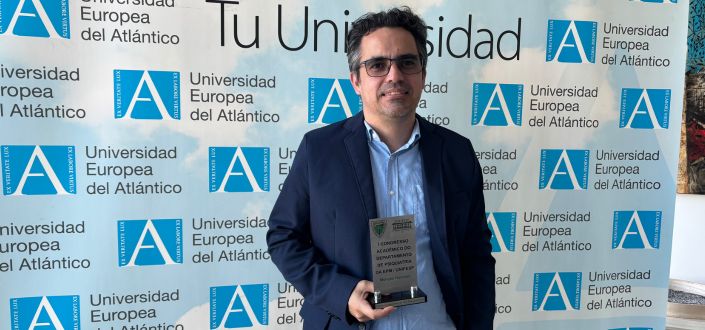During the first Academic Congress of the Department of Psychiatry at the Paulista School of Medicine of the Federal University of São Paulo (UNIFESP), Dr Angel Olider Rojas, a researcher at the Universidad Europea del Atlantico (European University of the Atlantic, UNEATLANTICO), was recognised for his outstanding scientific work in the field of mental health.
The study entitled “Sociodemographic and clinical profile of young people who meet ultra-high risk criteria for psychosis in a low- and middle-income country: 10 years of a Brazilian outpatient clinic”, carried out by Rojas together with Henrique Teruo, was developed within the Programme for Recognition and Intervention in Mental States of Risk (PRISMA) and received recognition alongside other doctoral and postdoctoral research carried out in recent years.
The longitudinal research was conducted between 2009 and 2019 and represents one of the most significant efforts in Latin America in the early detection of first-episode psychosis. The work is part of the SepiPrep project, whose main objective is the implementation of early intervention strategies in the public health system.
During the conference, held at the UNIFESP headquarters, various research projects carried out by the Department of Psychiatry were presented. Among them, the study in which the UNEATLANTICO professor participated stood out for its methodological rigour and potential impact on public policy.
As a result of the project, a manual was produced for the Brazilian Ministry of Health, which includes guidelines and strategies for the adoption of psychosis prevention programmes in low- and middle-income contexts. This document has already been delivered to the health authorities and the research team is currently working on the scientific publication of the study.
This recognition represents an important step towards the consolidation of more inclusive mental health policies based on scientific evidence, especially in developing countries.


